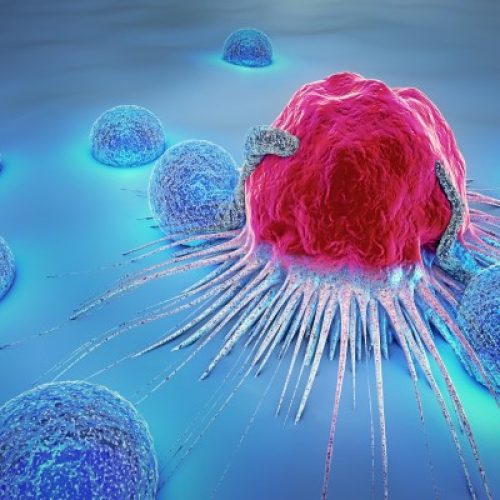CANCER
What is Interventional Oncology?
In the treatment of cancer and cancer-related disorders, interventional oncology is considered one of the four pillars of a multidisciplinary team approach. Other therapies involve medical, surgical and radiation oncology.
Interventional oncology procedures offer both minimally invasive diagnosis and targeted cancer treatment. Image guidance (Fluoroscopy/ DSA, CT or USG) is used in combination with the most recent innovations available to treat cancerous tumours while minimizing possible damage to other body organs.
Most patients who undergo these procedures are either outpatients or require a hospital stay for a night.
For cancer treatment, some of these therapies are regional, and they cover various areas of the liver with chemoembolization or radioembolization. Other options are best known as local, as when the radiofrequency ablation (heating) is used to treat focal lesions in the kidney, liver, lung and bone. Such techniques are usually reserved for patients whose cancer can’t be removed surgically or treated efficiently with systemic chemotherapy. They are also used frequently in combination with other therapies that additional members of the cancer team have.
Interventional oncology procedures offer both minimally invasive diagnosis and targeted cancer treatment. Image guidance (Fluoroscopy/ DSA, CT or USG) is used in combination with the most recent innovations available to treat cancerous tumours while minimizing possible damage to other body organs.
Most patients who undergo these procedures are either outpatients or require a hospital stay for a night.
For cancer treatment, some of these therapies are regional, and they cover various areas of the liver with chemoembolization or radioembolization. Other options are best known as local, as when the radiofrequency ablation (heating) is used to treat focal lesions in the kidney, liver, lung and bone. Such techniques are usually reserved for patients whose cancer can’t be removed surgically or treated efficiently with systemic chemotherapy. They are also used frequently in combination with other therapies that additional members of the cancer team have.

Which treatments do we provide for Interventional Oncology?
At The Vascular Experts, we offer distinctive, minimally invasive, complete care procedures for oncology patients. Treatments are available at many of our state-of-the-art outpatient centers that include both Diagnostic & Therapeutic Procedures.
Which treatments do we provide for Interventional Oncology?
USG guided, and CT guided FNAC/Biopsies
Book an Appointment For a Consultation
Supportive Procedures:
- Paracentesis or Thoracentesis
- PICC line placement
- Tunnelled catheter placement
- Port catheter placement
- Percutaneous biliary drainage Percutaneous nephrostomy
- PleurX catheter placement
- Stenting of malignant strictures: bile duct, esophageal,
- tracheobronchial, and intestinal Portal vein embolization
- Embolization to achieve hemostasis. Pain management.

